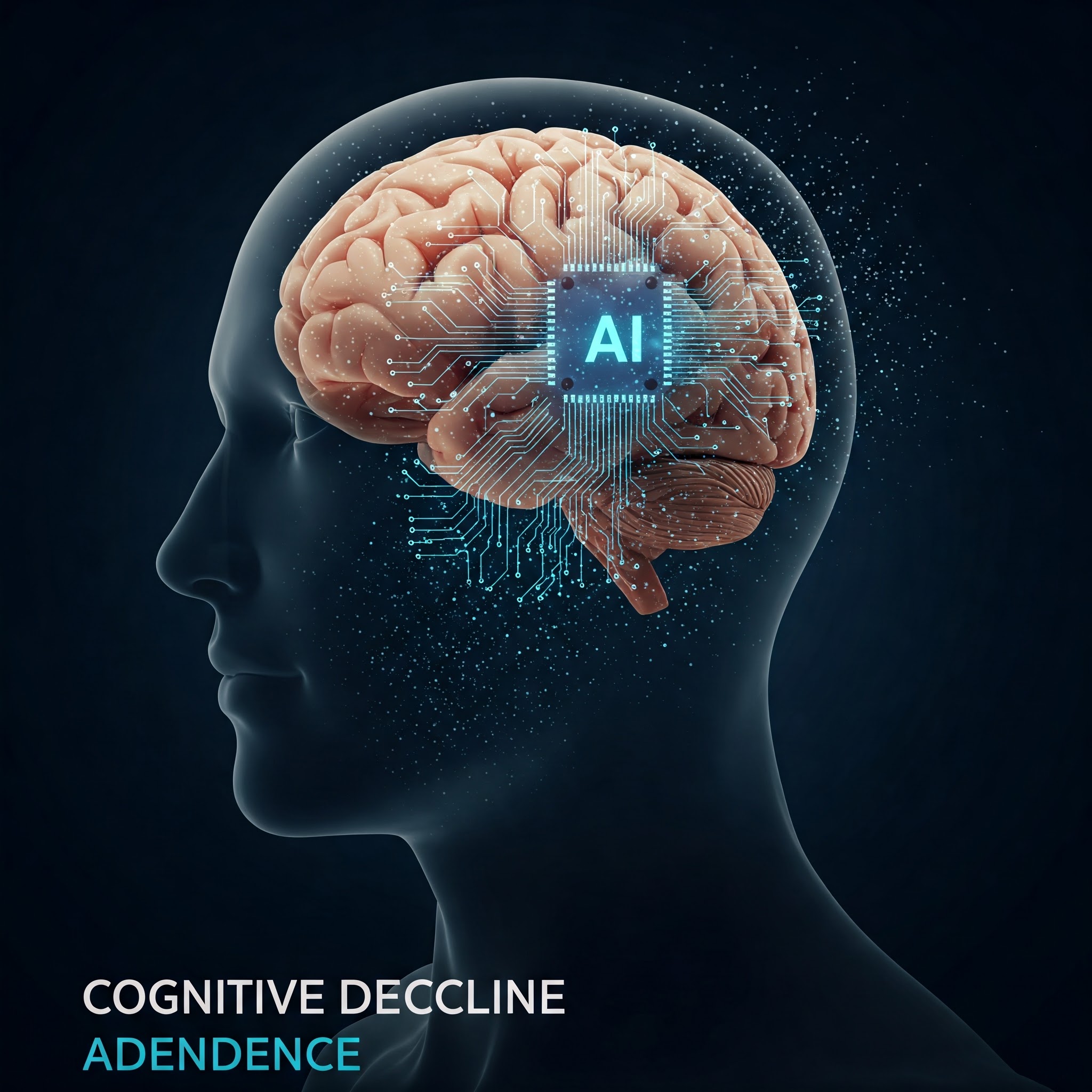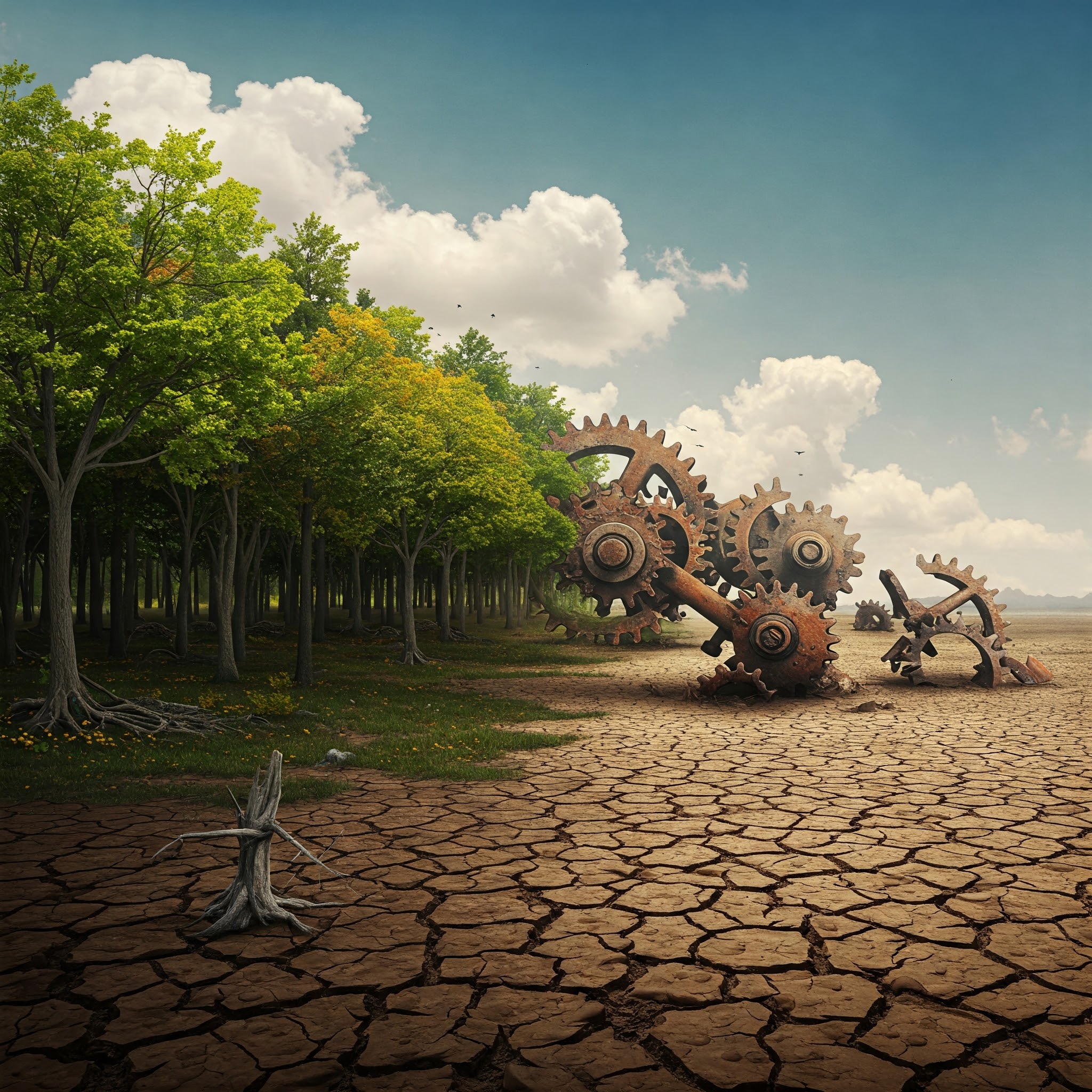
How Over-Reliance on AI Weakens Human Cognition and Problem-Solving
1. Cognitive Decline Due to AI Dependence
a) Reduced Critical Thinking
Problem: People increasingly rely on AI (e.g., ChatGPT, AI assistants) for answers rather than reasoning independently.

Example: Students using AI to write essays lose the ability to structure arguments or analyze sources critically.
b) Erosion of Creativity & Innovation
Problem: AI-generated content (art, music, writing) may discourage original human creativity.
Example: Artists relying on Midjourney for designs may lose manual drafting and ideation skills.
c) Memory & Learning Atrophy
Problem: Outsourcing memory (e.g., search engines, AI note-taking) weakens retention and recall.

Example: GPS reliance has already been linked to poorer spatial navigation skills.
2. Loss of Professional & Technical Skills
a) Deskilling in the Workforce
Problem: Automation and AI tools (e.g., coding assistants like GitHub Copilot) reduce hands-on expertise.
Example: Junior developers may struggle with debugging without AI, lacking foundational coding skills.
b) Decline in Decision-Making
Problem: Over-trusting AI recommendations in medicine, finance, or law can lead to passive decision-making.
Example: Doctors relying on AI diagnostics may miss nuances in patient symptoms.
c) Reduced Adaptability in Crises
Problem: If AI fails (e.g., power outages, cyberattacks), humans may lack the skills to respond.
Example: Pilots overly dependent on autopilot struggling with manual flight control in emergencies.
3. Social & Psychological Impacts
a) Reduced Problem-Solving Resilience
Problem: Instant AI solutions discourage persistence in overcoming challenges.
Example: Younger generations giving up quickly on math problems without tools like Photomath.
b) Erosion of Interpersonal Skills
Problem: AI chatbots and virtual companions may reduce empathy and face-to-face communication skills.
Example: Teens preferring AI friends (e.g., Replika) over real social interactions.
c) Overconfidence in AI’s Infallibility
Problem: Assuming AI is always correct leads to blind trust in flawed outputs (e.g., misinformation).
Example: Lawyers citing fake AI-generated legal cases in court filings.
4. Historical Parallels & Future Risks
Precedent: Similar skill erosion occurred with calculators (mental math decline) and spellcheck (weaker spelling ability).

Future Risk: If AI advances further, humans may lose skills deemed "obsolete"—until AI systems fail or are compromised.
5. Mitigating the Risks
a) Balanced AI Integration
Use AI as a tool, not a crutch—e.g., require students to show handwritten drafts before using AI.
b) Skill Preservation Initiatives
"Analog" Training: Regular exercises without AI (e.g., manual calculations, unaided writing).
Critical Thinking Curricula: Schools emphasizing logic, debate, and AI skepticism.
c) Human-AI Collaboration Frameworks
"Human-in-the-Loop" Systems: Ensure final decisions require human judgment (e.g., medical AI as advisory only).

Powered by Froala Editor

Parenting
Dependence on AI & Loss of Human Skills
Artificial Intelligence (AI)
AI in Cybersecurity: Hacking & Cybercrime
Artificial Intelligence (AI)
Existential Risk & Superintelligent AI
Artificial Intelligence (AI)
AI Manipulation & Behavioral Control